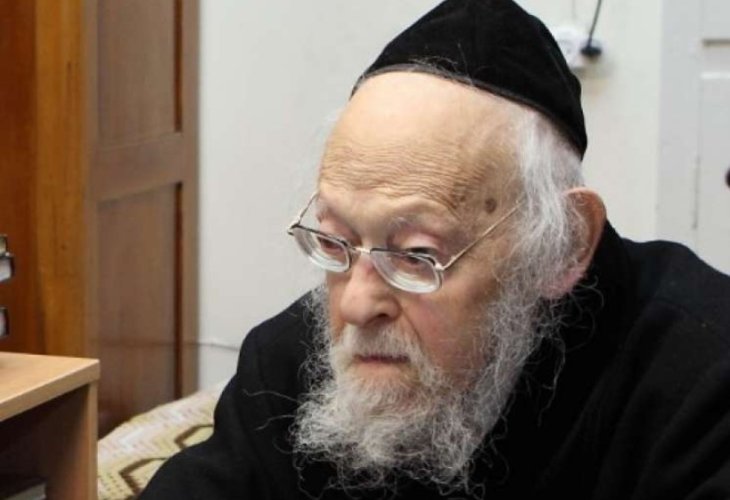Personal Stories
The Blessing Hidden in What You Already Have
A wealthy man broke down before Rabbi Elyashiv—until the rabbi gently reminded him how rich he truly was.
 (Photo: Yaakov Naumi/Flash90)
(Photo: Yaakov Naumi/Flash90)Years ago, Rabbi Ben Tzion Kok accompanied a wealthy Jewish philanthropist—someone known for generously supporting Torah learning and students—to the humble room of Rabbi Yosef Shalom Elyashiv, of blessed memory, one of the greatest Torah sages of our generation. As soon as they stepped inside, the philanthropist broke into bitter tears. “I've given so much to support Torah,” he began, his voice shaking. “I've partnered with many yeshiva students in Yissachar-Zevulun arrangements,”—a Torah-based agreement where one person studies Torah while the other supports him financially, and they share in the spiritual reward. “I’ve encouraged others to give as well. And until recently, every business deal I made was successful. But now, everything is falling apart. My investments have collapsed. I’ve lost so much.”
Rabbi Elyashiv listened quietly. Then, with his signature gentleness, he asked, “Tell me—are you healthy? Is your wife healthy? Are your children healthy and whole?” The man nodded. The rabbi leaned forward and said, “That alone is worth more than all the money in the world. Imagine how much you would pay if, Heaven forbid, one of your eyes could not see, or if your wife could not hear. Thank God, everything in your family works just as it should. That is an immense fortune that Heaven has given you.”
He continued, “The Torah says, ‘Aser bishvil shetit’asher’—‘Tithe so that you will become wealthy’ (Talmud, Ta’anit 9). Your giving is not in vain. Hashem sometimes gives back in ways that go beyond money. Health, peace in your home, children who bring you joy—these are no less a form of wealth.”
Rabbi Kok added that Rabbi Elyashiv often spoke of the power of Birkat HaMazon, the blessing said after eating a bread-based meal. “The Talmud teaches that anyone who says Birkat HaMazon carefully and with intention will always be sustained with dignity.” That means not just reciting the words, but understanding and respecting the laws that come with it.
He explained how easily people overlook this. According to Jewish law (Shulchan Aruch, Orach Chaim 168:6), if someone eats a certain amount of baked goods during a meal—especially if it's filling like cake or pastries—they may actually be obligated to say the full Birkat HaMazon. Rabbi Elyashiv would say that even eating around 150 grams creates a doubt, and eating 230 grams definitely requires it. Sometimes, even salad or other meal items combine with baked goods to reach this amount.
“Even if you're not washing your hands for bread,” Rabbi Kok warned, “if you eat enough cake or pastries to satisfy your hunger, you may need to say Birkat HaMazon. People don’t always realize this. But there’s spiritual power in being careful with these details.”
He concluded with a message that applies to all of us: “Anyone who learns the laws of Birkat HaMazon and says it with care and sincerity opens the gates of blessing. Hashem pours abundance from above on those who appreciate even the smallest gifts.”

